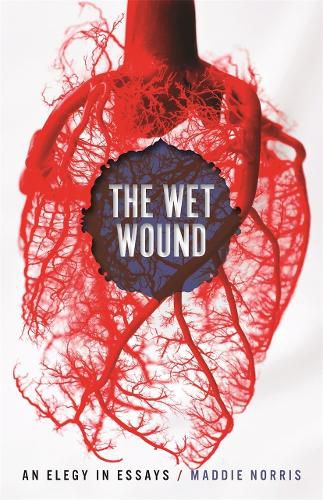Readings Newsletter
Become a Readings Member to make your shopping experience even easier.
Sign in or sign up for free!
You’re not far away from qualifying for FREE standard shipping within Australia
You’ve qualified for FREE standard shipping within Australia
The cart is loading…






This debut essay collection is inspired by the grief Maddie Norris experienced in the wake of her father's death from cancer when she was seventeen. Norris uses a medical lens to examine the anguish that followed and likens mourning to wound care.
These linked essays examine grief from different angles, resulting in a multilayered exploration of why, contrary to popular belief, keeping wounds open is the best way to care for them physically and emotionally. Norris approaches the narrative through various topics-the investigation of body preservation, the history of skin grafts, and a deep dive into physical pain-all of them related to how she carries this fundamental loss.
By centering on the importance of mourning (a long-term practice frowned upon in Western culture), the essays unsettle conventional wisdom as the text pushes against the stereotypical notion of "letting go" and "moving on." The Wet Wound: An Elegy in Essays thus unpacks the question: What happens when, instead of following steps prescribed by those outside loss, we let ourselves dwell in grief?
$9.00 standard shipping within Australia
FREE standard shipping within Australia for orders over $100.00
Express & International shipping calculated at checkout
This debut essay collection is inspired by the grief Maddie Norris experienced in the wake of her father's death from cancer when she was seventeen. Norris uses a medical lens to examine the anguish that followed and likens mourning to wound care.
These linked essays examine grief from different angles, resulting in a multilayered exploration of why, contrary to popular belief, keeping wounds open is the best way to care for them physically and emotionally. Norris approaches the narrative through various topics-the investigation of body preservation, the history of skin grafts, and a deep dive into physical pain-all of them related to how she carries this fundamental loss.
By centering on the importance of mourning (a long-term practice frowned upon in Western culture), the essays unsettle conventional wisdom as the text pushes against the stereotypical notion of "letting go" and "moving on." The Wet Wound: An Elegy in Essays thus unpacks the question: What happens when, instead of following steps prescribed by those outside loss, we let ourselves dwell in grief?